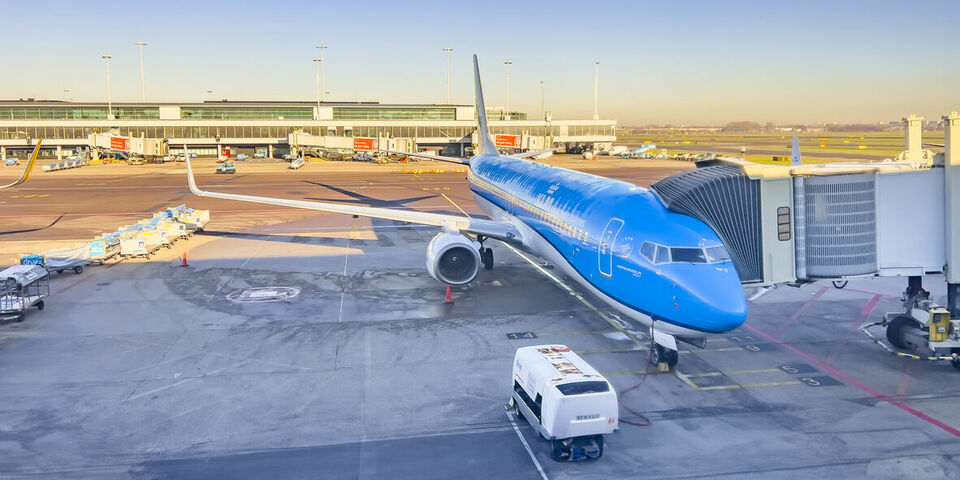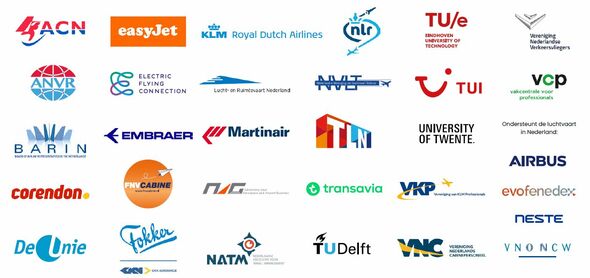Aviation coalition: force in making aviation more sustainable or lobbying vehicle?
Together with thirty other parties, TU/e signed a pact to make aviation cleaner, quieter and stronger. Cursor reader and TU/e alum Maarten Langeveld thinks this isn’t right, because he believes the coalition is being abused as a lobbying tool for aviation.
Recent media reports suggest the aviation coalition is calling for putting an end to downsizing and for keeping aviation affordable. One of these came from the Wakker Nederland network in January and was headlined ‘Luchtvaartsector doet dringende oproep aan politiek: ‘Stop met krimp en houd vliegen toegankelijk’ (Aviation sector urgently calls for politicians to end downsizing and keep aviation accessible). National newspaper Het Parool published a piece of a similar nature. Incidentally, Schiphol – a government company – hasn’t joined the coalition. TU/e has, just like the University of Twente and Delft University of Technology (TU Delft).
Electric flights
This raises the question of how TU/e will be contributing exactly to the goal of making aviation more sustainable, quieter, and cleaner, as TU Delft is much more specialized in aviation than our Eindhoven university. Board spokesperson Ivo Jongsma comments that “the aviation sector is in great need of innovation to increase sustainability and this goes beyond traditional aviation and aerospace engineering (at TU Delft, ed.).”
“One of the ways in which we are willing and able to contribute is through research in such areas as electric flights and Sustainable Aviation Fuels.” According to Jongsma, an example of this is the recent work of Emiel Hensen in Nature Chemical Engineering. “We also have projects in the area of fully battery-operated aircraft (Netherlands Enterprise Agency project GTD-E) and are part of the National Growth Fund on circular batteries.” TU/e also participates in an EU project on hydrogen propulsion for aircraft. “The knowledge we have in the automotive domain comes in handy now. And there’s also a student team (Falcon) that is doing a conversion into an electric plane.”
Ten commitments
The pamphlet signed by 31 parties outlines ten commitments for aviation in the Netherlands as input for the 2023-2027 government agreement, including investing in sustainable fuels and more international short-distance trains. Jongsma confirms TU/e has endorsed the document in which the aviation sector expresses these ambitions for futureproof aviation. The subheading of the pamphlet is ‘Samen naar schoner, stiller en sterker’ (Together towards cleaner, quieter, and stronger). “It’s a powerful text that goes into all of the major changes needed in the sector, especially in the area of sustainability, with lots of attention for innovation in areas that dovetail with our expertise.”
Greenwashing
Most of the signatories are partners from aviation, such as domestic and international airlines, handlers, and service providers to aviation, but they also include the three aforementioned universities. Alum Langeveld isn’t convinced by TU/e’s arguments. He thinks the universities are being used by the aviation sector and sees their support as a type of greenwashing, on which he wrote an opinion piece in national daily De Volkskrant on February 2. The alum does support the university’s aim of helping aviation become more sustainable, but he thinks the scope of the coalition – including the lobby against downsizing and in favor of affordability of aviation – is inappropriate. Langeveld: “In my opinion, if a scientific and (allegedly) independent institution takes political sides like this, it crosses every line. As a TU/e alumnus I’m pretty ashamed of my alma mater.”
When asked if TU/e itself endorses the claims in the media on such things as ending downsizing and keeping aviation affordable, Jongsma responds: “Keeping aviation affordable and ending downsizing aren’t mentioned in the pamphlet (the document containing the commitments, ed.). It does say that downsizing shouldn’t be a goal in itself. We think that’s a healthy point of departure; the goal should be to make aviation more sustainable.” Jongsma goes on to say he thinks the the pamphlet’s message has generally been accurately portrayed by the media.



Discussion